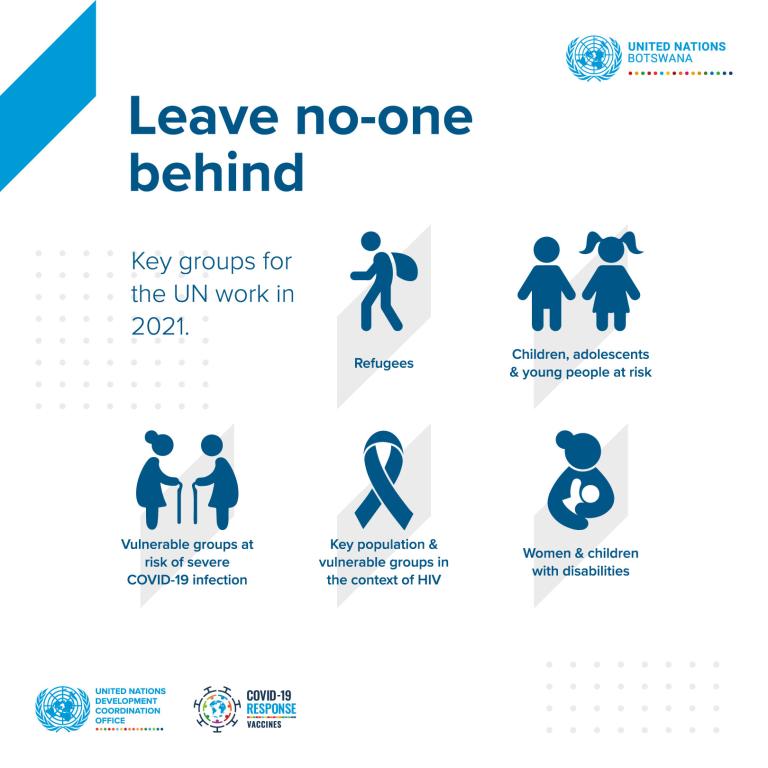To improve access to information, in 2021 the United Nations in Botswana facilitated the production of public information messages about (1) COVID-19 risk, and (2) sexual and reproductive health and rights (SRHR) in accessible formats for people with disabilities, including those who are blind and visually impaired.
The SDGs were also translated into braille and local languages, enabling more inclusive participation in the work towards attaining the SDG targets. The Government developed and approved standard service packages for marginalized and potentially vulnerable groups such as sex workers, men who have sex with men, adolescent girls and young women. It also ratified the Convention on the Rights of Persons with Disabilities.
Internally, however, more needs to be done. This includes capacity development for staff on disability inclusion, as well as improving the accessibility of United Nations offices and ensuring that external venues are also selected with accessibility in mind. United Nations procurement processes also need to be more accessible to the blind and visually impaired.
